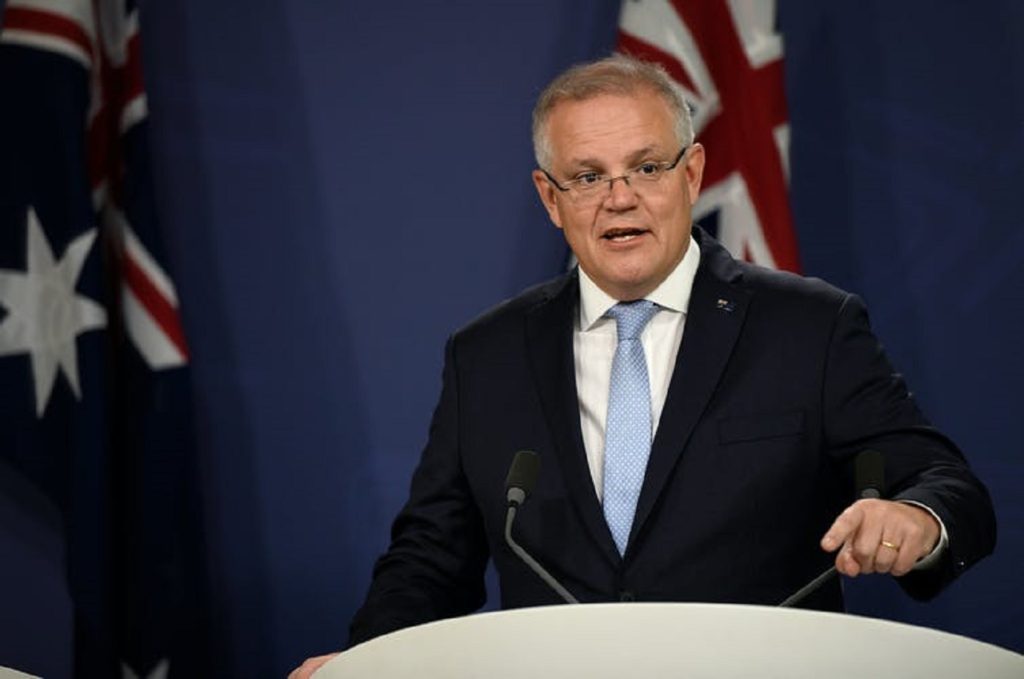In the midst of the pandemic, the issue of women’s economic security, or more accurately put their in-security, has moved up the agenda.
We all know women have disproportionately been impacted by both the social and the economic impacts of the pandemic, and many have raised concerns that it could set women back a generation … or more. Even before the pandemic, women retired on average with half the super of men, and women over the age of 55 were the fastest growing cohort of the homeless population.
The economic impacts of the pandemic on women – their ability to earn and save – will only exacerbate those troubling trends, many warned.
With that in mind, and against a wider backdrop of a growing movement sparked by the Brittany Higgins allegations calling for “justice for women”, including “economic justice”, Prime Minister Scott Morrison said he cared.
In March, he appointed Senator Jane Hume as the dedicated Minister for Women’s Economic Security as part of a wider Cabinet reshuffle that saw a phalanx of lady ministers installed as part of a “women’s taskforce” co-chaired by Minister for Women Marise Payne and Scott Morrison.
Then in April, the Prime Minister’s Office released a media statement stating that women’s economic security would be on the agenda of National Cabinet on July 9th, and that “as part of that discussion, National Cabinet would consider establishing whether we embark on a National Plan process for women’s economic security”.
Essentially, the “National Plan” process would follow the model of the now decade old National Plan to Reduce Violence Against Women and Their Children.
Also in April, Scott Morrison and Attorney General Michaelia Cash fronted a press conference to announce the government’s long overdue response to Sex Discrimination Commissioner Kate Jenkins’ Respect@Work sexual harassment inquiry and its 55 recommendations. Yes, it took them 13 months and a historic women’s march to get there.
Of sexual harassment, Scott Morrison said, “It denies women not only their personal security, but their economic security by not being safe at work”. I won’t argue with that. And he described Jenkins’ inquiry as a “game changer”. Again, no argument from me.
But then Morrison and Cash led the media to believe that his government had accepted all of Jenkins’ 55 recommendations. But the devil, as always, was in the detail: the actual full response to the Respect@Work inquiry was not made available to the media for another 2 hours (prompting journalists who attended the the Aged Care Royal Commission response press conference, where the Morrison government played the same game, to experience an intense feeling of déjà vu). Of course, that meant journalists couldn’t ask any substantive questions about the Respect@Work response.
Thus, Morrison got his “Government accepts Jenkins inquiry recommendations” headline. Except it hadn’t… but more on that in a minute.
Fast forward three months, and it’s all gone quiet.
Ahead of the July 9th National Cabinet meeting at which women’s economic security was meant to be on the agenda, neither Jane Hume nor Marise Payne, Morrison’s “Prime Minister for Women” as he called her when he announced the special cabinet level task force, would respond to my numerous requests for confirmation that women’s economic security, as flagged by Prime Minister’s Office (PMO) in April, was still on the agenda. The PMO would only say that, “It is a longstanding practice not to disclose information about the operation and business of the Cabinet.”
How “long-standing” that practice could be, given National Cabinet as an entity, which replaced COAG, has only been in existence for a little over a year and the PMO itself violated that “practice” by issuing a media statement saying women’s economic security would be on the agenda, is by the by.
What’s more, Marise Payne, in her capacity as the Minister for Women, caused further concern when she announced – just two days before women’s economic security was supposed to be on the agenda at National Cabinet (and then wasn’t) — that the Morrison government was defunding the Security4Women Alliance, one of the six national women’s alliances that has been dedicated to raising the issue of women’s economic security up the agenda for more than two decades. The co-founders are filthy angry and have vowed to fight on.
Lastly, once journalists and advocates were able to examine the fine print of the Morrison government’s response to Jenkins’ “game changing” sexual harassment inquiry, it soon became clear that it was yet another cynical attempt by the Morrison government to bait and switch the women of Australia.
The Morrison government only accepted 40 of 55 recs. Among those they did not accept: the most important, principal recommendation for a “positive duty” on employers to take meaningful action to prevent sexual harassment.
On Monday, in her persistent, determined way, Kate Jenkins indicated that she’s not having it — and she went back into bat for the women of Australia, but this time she brought a posse.
Jenkins told a Senate Committee examining the government’s proposed Respect@Work Amendment Bill that it must be amended to include the positive duty. Numerous advocates and experts who gave evidence said the same, including Lisa Annese, the CEO of The Diversity Council Australia, Sally Moyle from the National Foundation of Australian Women, Jenny Gray from Not in My Workplace, Patty Kinnersly, the CEO of Our Watch, and Melanie Schleiger, the Equality Law Program Manager at Victorian Legal Aid.
The point is, what does all this say about how seriously the Morrison government is taking this vital issue — women’s economic security — at a critical time? The short answer is: not very. Morrison and Co. do, however, continue to take every available opportunity to take the women of Australia for mugs.
Kristine Ziwica is a regular contributor. She tweets @KZiwica


